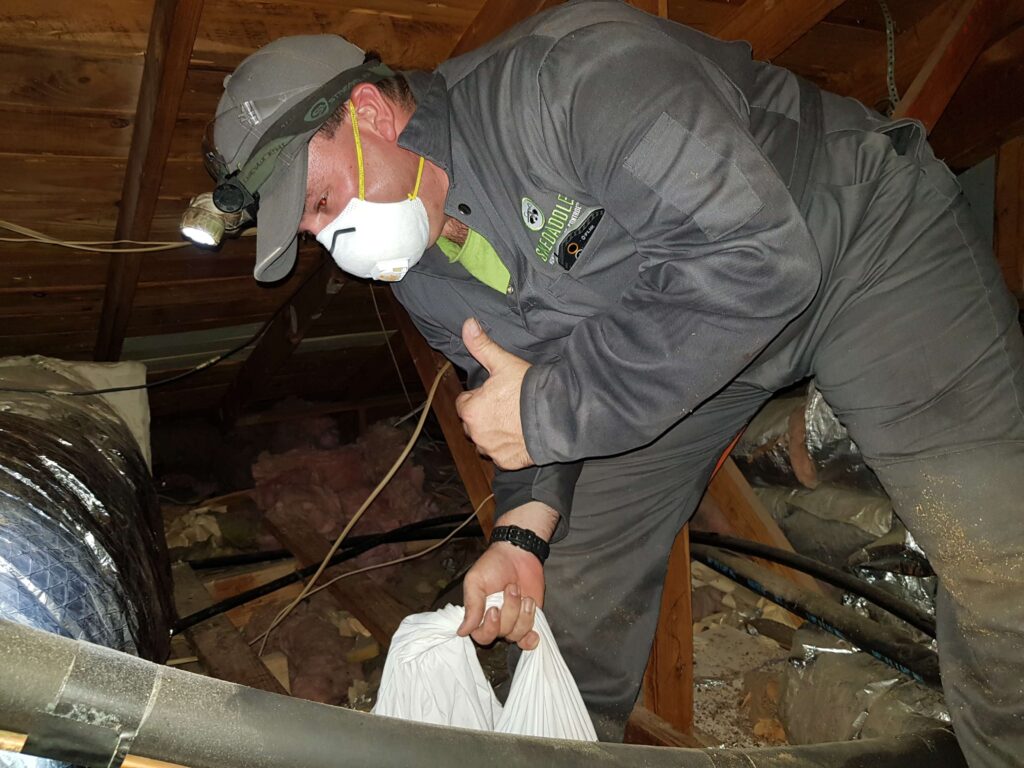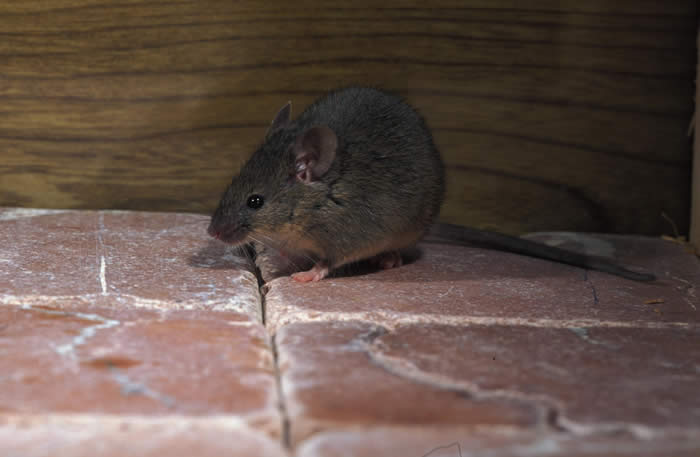One of the things that are unnerving about a mouse infestation is that you may not actually see the animals themselves. They are very small and active only at night, so you may only hear them, or you may see droppings. Another thing that is scary about a mouse infestation is that it can also pose the invisible threat of disease. Professional wildlife control in Richmond Hill can remove this threat. Here is some information about mice and disease.
What Kinds of Diseases Can Mice Spread?
Mice can spread many different kinds of diseases to people. Two of the most concerning are salmonella and hantavirus.
Salmonella is a type of bacteria that mice can spread through their feces. People who ingest food contaminated with salmonella suffer gastrointestinal complaints, such as cramping, vomiting, diarrhea, as well as fever. Most people with salmonella recover completely on their own, but some may require a course of antibiotic treatment. Salmonella can also cause complications, such as dehydration. The infection can spread to other areas of the body. Some people can experience reactive arthritis, which causes pain in the joints and can last long after the primary infection has resolved. It can take several months for bowel habits to go back to normal following a salmonella infection.
Hantavirus causes severe respiratory distress. Patients typically have to go to the hospital for mechanical ventilation to help them breathe. Because it is a virus, it cannot be treated with antibiotics, and researchers have yet to find an antiviral medication that is effective against it. Treatment consists of supportive treatment, including mechanical ventilation, until the disease runs its course. Approximately one-third of all hantavirus cases are fatal.
How Do Mice Spread These Illnesses?
Mice spread salmonella and hantavirus through their urine and feces. In the case of salmonella, they may contaminate food while they are foraging. They may also contaminate surfaces or utensils used for food preparation. They could also contaminate other surfaces that you come in contact with, and then you could contaminate food, prep surfaces, or utensils if you attempt to cook or eat without washing your hands first.
Hantavirus spreads through aerosolized particles from a mouse’s urine or feces that contain the virus. Breathing in these particles could cause you to become infected. For this reason, even though it may run counter to your first instincts, you do not want to immediately vacuum or sweep up any mouse droppings that you find because you could stir up the particles and send them into the air where they can be more easily inhaled. You first want to disinfect the droppings using a bleach solution and then carefully clean them up with paper towels, which you then place into a sealed plastic bag and throw away.
What Mouse Behaviours Contribute to the Spread of Disease?
Mice often make their homes close to sources of food. This makes it easier to forage. Mice may nest in the walls of your kitchen and crawl all over the sinks and counters at night. They may also make nests in pantries and other food storage areas. If you store food in the boxes and bags it came in and find that holes have been chewed in them, you know that mice have been there. You should throw the food away because it has probably been contaminated.
Mice may also make nests in air ducts. If so, they have probably been urinating and defecating in there too. The HVAC system may be blowing aerosolized particles from mouse urine and feces around the whole house, increasing the risk of hantavirus infection.
Why Should You Call Skedaddle for Wildlife Control in Richmond Hill?

Mice removal involves more than simply taking the animals out of your home and putting them back outside. Our technicians are trained to safely clean the areas where they have been to prevent accidental exposure to pathogens. We also seal entry points so the mice cannot come back. Find out more about our services.




